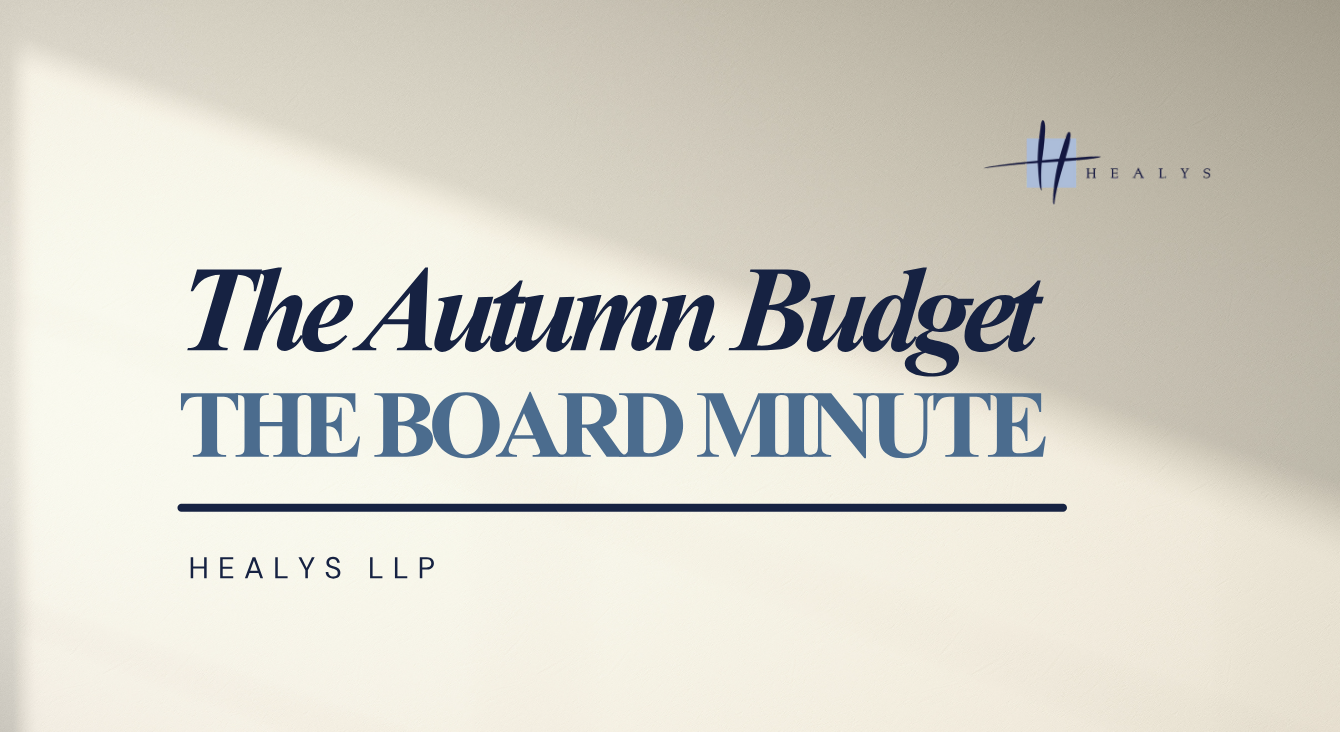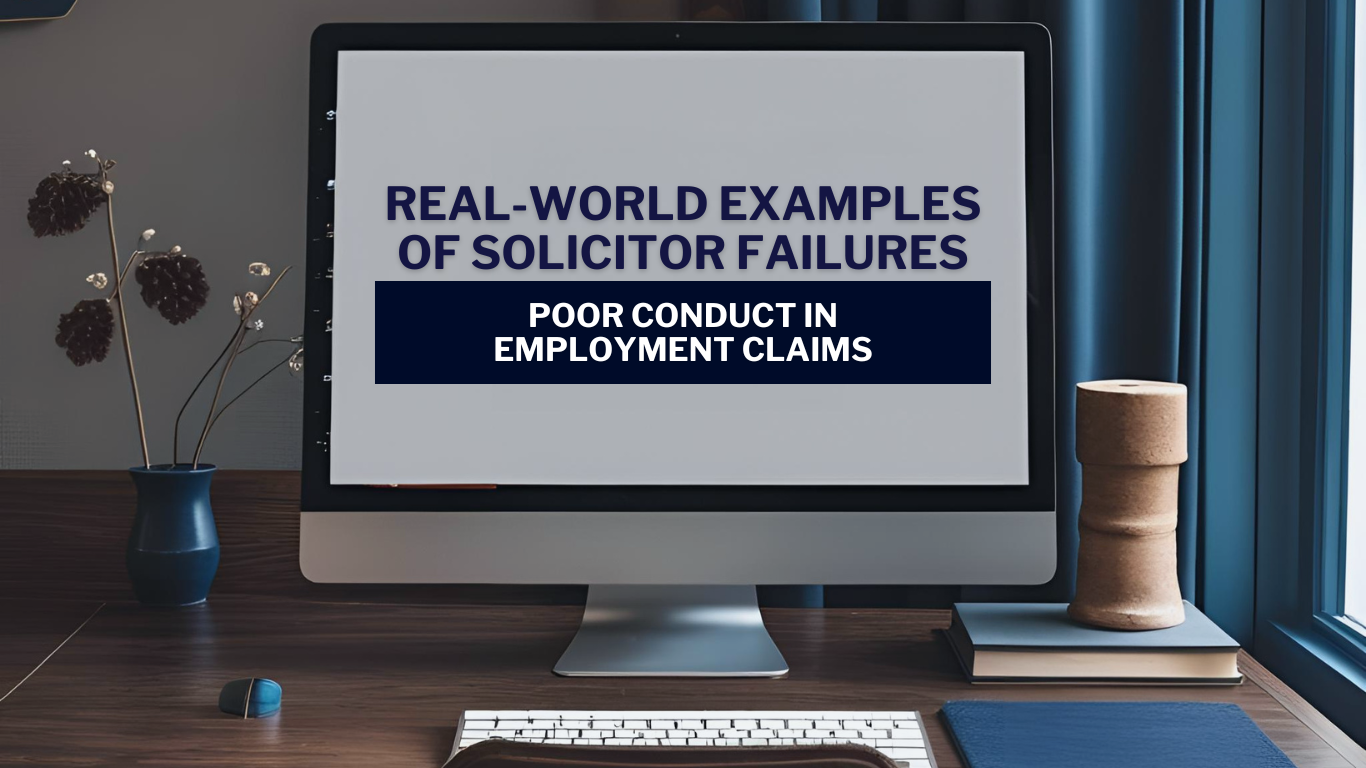By Jamie Lasaki
•
min read


There is a lot of detail still to come out and some interesting information that was not widely announced will be of interest to those looking to carry out company reorganisations or sell to an employee ownership trust (EOT).
Share exchanges and company reorganisations
From 26 November 2025, new capital gains tax (CGT) anti-avoidance rules will apply. These broaden the definition of what counts as a “tax advantage”. In practice, this means that if a business carries out a share swap or company restructure and includes extra steps mainly to reduce tax, HMRC may now challenge it more easily. Parties will need to work with their accountants and legal advisors to show there is a genuine commercial purpose for the restructure.
Employee Ownership Trusts (EOTs)
From 26 November 2025, the CGT relief available when selling a business to an EOT will be reduced by half, from 100% relief to 50%. 50% of the gain will be treated as chargeable and business asset disposal relief will not be available.
Dividend Tax Increase (from April 2026)
Owner-managed businesses that pay directors via dividends will face a higher tax bill from 2026 as we will see dividend tax rates rise by 2% for some. This means that basic rate tax payments will increase from 8.75% to 10.75% and higher rate tax payers will go from paying 33.75% to 35.75%. There is no change to the additional tax rate which remains at 39.35%.
Business Rates Overhaul
The Chancellor announced permanently lower business rates for retail, hospitality and leisure properties, benefiting over 750,000 premises. £4.3 billion in business rates support will be delivered over the next three years and it looks like larger companies will shoulder a greater share of the burden. Businesses with larger commercial premises or warehouses should plan for increased business rates.
E-invoicing
From April 2029, all VAT-registered businesses will need to issue electronic VAT invoices for every business-to-business transaction. This measure forms part of the government’s wider digitalisation agenda, aimed at simplifying VAT compliance, improving accuracy and reducing fraud. We advise all businesses to begin reviewing and updating their systems in good time to ensure they can meet the new mandatory e-invoicing requirements.
Electric Vehicle Road Pricing
Companies with car and van fleets should be aware that electric vehicle drivers will be charged 3p per mile, rising annually with inflation. This replaces declining fuel duty revenue and increases running costs for EV owners. This is contrasted with a small but immediate cost-of-living benefit for commuters and businesses with petrol vehicles as we see the 5p fuel Duty cut extended and rail fares frozen for another year.
Gambling Tax Changes
The government says there will be no changes for in-person betting or horse-racing in recognition of the cultural value provided for millions across the country. However, remote gaming duty increases from 21% to 40% next year! Those operators in online gaming will face considerably higher tax costs while Bingo operators will benefit from a small tax reduction.
Employment
Income Tax Threshold Freeze Extended to 2030
The tax-free personal allowance will remain frozen at £12,570 for an additional three years, taking the freeze through to April 2031. Because this threshold has been unchanged since April 2021, the decade-long pause means more individuals have been, and will continue to be, brought into paying income tax as earnings rise but allowances do not follow suit. This is effectively a long-term tax rise on income. Directors, employees and contractors should expect a higher overall tax burden through fiscal drag, without any change to headline tax rates.
National Living Wage
Employers will have noted that from April 2026 they will need to ensure those 21 and over are paid the new National Living Way of £12.71 per hour.
Pension Salary-Sacrifice Cap Introduced (from 2029)
Currently there is no upper limit on pension contributions made via salary sacrifice that benefit from National Insurance exemptions. This is set to change and from April 2029, a new £2,000 annual cap will apply. This will impact both employers and employees who will both become subject to NIC contributions. Company directors and high-earning employees who use salary sacrifice to make large pension contributions will be impacted by this. Businesses using pension contributions to manage payroll tax efficiency will need to restructure remuneration planning before 2029.
Estate Planning
Higher Tax on Savings and Property Income (from April 2027)
The Budget confirmed that tax on asset-based income, including savings interest and property income, will also rise by 2%. This reduces the tax advantage of generating income from assets rather than from employment and so landlords and those with significant savings should expect a higher tax charge.
High-Value Property Surcharge (“Mansion Tax”)
A new council tax surcharge will apply to properties valued above £2 million. It is expected that bands will start at £2,500 for properties between £2m–£2.5m and go up to £7,500 for properties worth £5m+. High-value homeowners will see higher annual property charges and it is expected that the majority of those affected will be London based properties. While property price rises don’t seem to be showing any signs of slowing, this measure is expected to only affect around 1% of properties in England. When planning how your estate will cover future inheritance tax bills, you shouldn’t only think about the standard inheritance tax (IHT) thresholds. If you own property or business assets that are now subject to reduced reliefs your potential tax exposure may be higher than expected. This means that any life insurance taken out to fund the eventual tax bill should be reviewed and potentially increased so it reflects the actual liability created by property and business assets, not just the basic IHT rules.
IHT reliefs
The government is pressing ahead with the plan to limit how much agricultural and business property can qualify for full inheritance tax relief. From 6 April 2026, each person will only be able to claim 100% relief on up to £1 million of qualifying assets; anything above that will receive only 50% relief, creating a 20% tax charge where there is currently none. This is a major change for farmers and business owners who rely on these reliefs to pass on their businesses. There is some good news, however: the new £1 million allowance will be transferable between spouses and civil partners, and this will also apply where a spouse has died before April 2026. The allowance will remain fixed at £1 million until at least April 2031.
Our Head of Private Client, Nosheen Bukhari says:
“It is always good practice to review your Will and consider estate planning every few years to ensure your assets pass in accordance with most recent legislative changes and in a tax efficient manner."
To discuss any of the points highlighted above, please contact our teams:
For business and company related matters: jamie.lasaki@healys.com
For employment matters: charlotte.wb@healys.com & lucy.demmon@healys.com
For estate planning and private client matters: nosheen.bukhari@healys.com
For more information or advice on any Corporate or Commercial matters, please also click below to contact our team who will be happy to help.
Get in touch